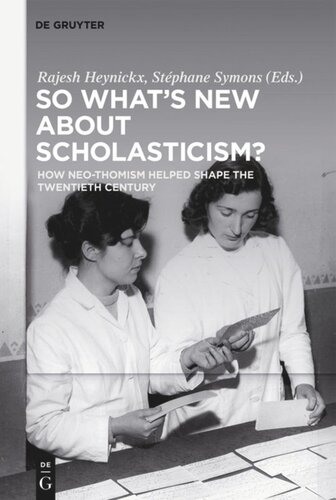

Most ebook files are in PDF format, so you can easily read them using various software such as Foxit Reader or directly on the Google Chrome browser.
Some ebook files are released by publishers in other formats such as .awz, .mobi, .epub, .fb2, etc. You may need to install specific software to read these formats on mobile/PC, such as Calibre.
Please read the tutorial at this link: https://ebookbell.com/faq
We offer FREE conversion to the popular formats you request; however, this may take some time. Therefore, right after payment, please email us, and we will try to provide the service as quickly as possible.
For some exceptional file formats or broken links (if any), please refrain from opening any disputes. Instead, email us first, and we will try to assist within a maximum of 6 hours.
EbookBell Team

4.3
68 reviewsIn So What’s New about Scholasticism? thirteen international scholars gauge the extraordinary impact of a religiously inspired conceptual framework in a modern society. The essays that are brought together in this volume reveal that Neo-Thomism became part of contingent social contexts and varying intellectual domains. Rather than an ecclesiastic project of like-minded believers, Neo-Thomism was put into place as a source of inspiration for various concepts of modernization and progress.
This volume reconstructs how Neo-Thomism sought to resolve disparities, annul contradictions and reconcile incongruent, new developments. It asks the question why Neo-Thomist ideas and arguments were put into play and how they were transferred across various scientific disciplines and artistic media, growing into one of the most influential master-narratives of the twentieth century.
Edward Baring, Dries Bosschaert, James Chappel, Adi Efal-Lautenschläger, Rajesh Heynickx, Sigrid Leyssen, Christopher Morrissey, Annette Mülberger, Jaume Navarro, Herman Paul, Karim Schelkens, Wim Weymans and John Carter Wood reconstruct a bewildering, yet decipherable thought-structure that has left a deep mark on twentieth century politics, philosophy, science and religion.